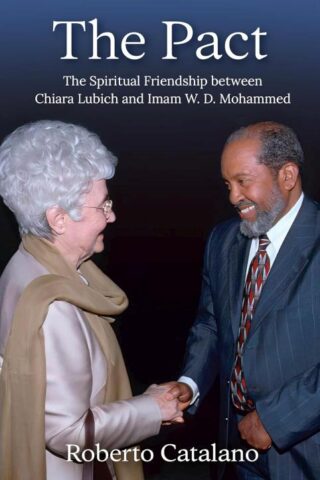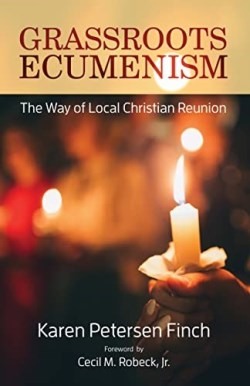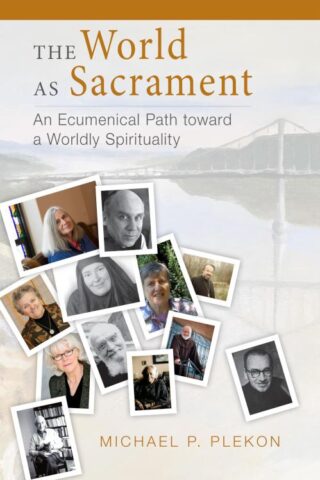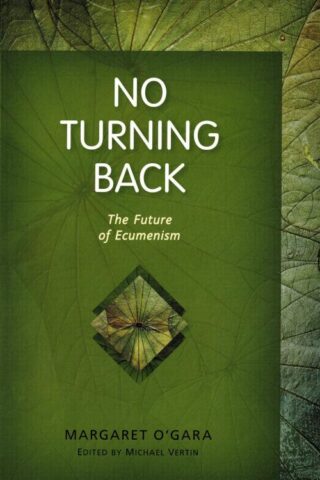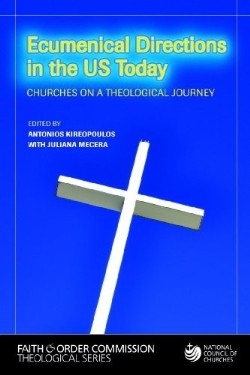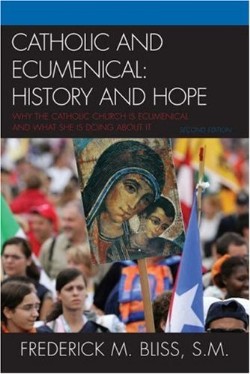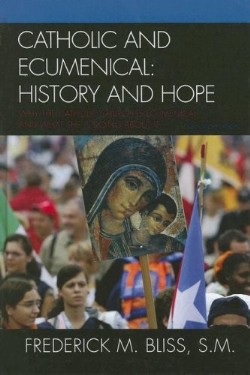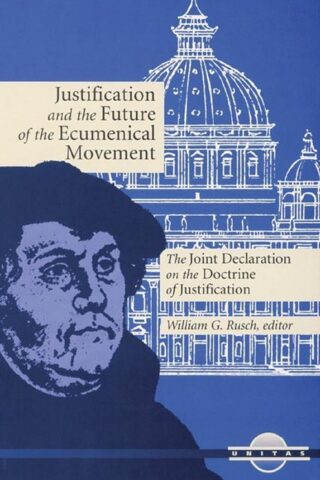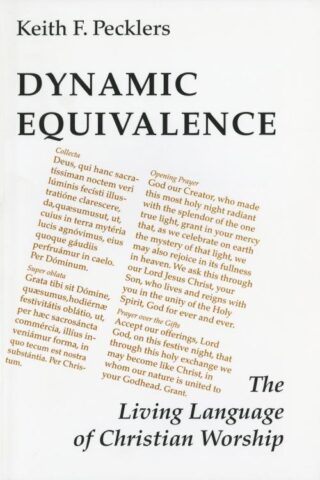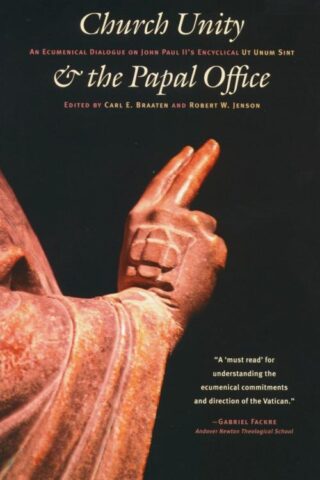Ecumenism
Showing all 12 results
-
Pact : The Spiritual Friendship Between Chiara Lubich And Iman W.D. Mohamme
$13.95Add to cartRoberto Catalano witnessed the birth and evolution of a religious, cultural, and ethnic encounter between a seemingly unlikely pair of leaders: one Christian and the other Muslim. In The Pact, he recounts their respective histories, which have captured the hearts and minds of millions worldwide who love and respect these two remarkable figures: Chiara Lubich, founder of the Focolare Movement, and Imam W. Deen Mohammed, who for thirty-three years led the Muslim American community.
-
Grassroots Ecumenism : The Way Of Local Christian Reunion
$24.95Add to cartThe quest for Christian unity has traditionally been initiated at the international level between official leaders of Christian denominations, with the effects of their dialogue expected to trickle down to local Christian communities. In Grassroots Ecumenism, Karen Petersen Finch upends this process, proposing an approach to Christian unity that begins in your neighborhood. She draws directly from her experience equipping everyday Christians to know their own Christian tradition more thoroughly and to engage thoughtfully with separated Christians down the street and around the corner.
-
World As Sacrament
$24.95Add to cartNot a few figures-writers, poets, activists, teachers-have focused on the presence of the Holy One in the ordinary, on the many possibilities of worldly spirituality. In this book, pastor, teacher, and theologian Michael Plekon introduces us to several persons of faith from both the Western and Eastern Church traditions to illumine God’s presence in everyday living: the world as sacrament. In this discovery of liturgy and life entwined, Plekon shows how these lives, and our own lives, are texts about looking for and following God in everyday existence.
-
No Turning Back
$29.95Add to cartJesus’ prayer on behalf of his of followers is “that all may be one. As you, Father, are in me and I am in you, may they also be one in us” (John 17:21). No Turning Back illustrates significant developments in ecumenism during the thirty-plus years of ecumenical theologian Margaret O’Gara’s own engagement in ecumenical dialogue.
This collection of selected papers from the final fifteen years of O’Gara’s work before her untimely death in 2012 aims
*to illustrate the broad lines of ecumenism for general readers
*to share concrete details of recent ecumenical developments with specialist readers
*to encourage both groups of readers in their commitment to the pursuit of full communion among the Christian churchesAn invaluable resource for academic and ecclesial specialists in ecumenism, teachers and students of theology and religious studies, Christian ministers, and all educated Christian adults who take seriously Jesus’ prayer “that all may be one.”
-
Catholic And Ecumenical
$51.00Add to cartA Church To Change
A Changing Church
Uniform No Longer
Estranged Sisters
Reform To Reformation
Reformation In England
Leaning Toward The Future
Additional Info
Ecumenical consciousness has not always been part of the Catholic experience. Frederick M. Bliss, S.M. traces how the concern for ecumenism came about-from uneasy tension to confidence in the true grace of catholicity. This new edition follows significant developments in dialogues with the Catholic Church up to 2006 and suggests likely trends of continuing change. It studies the forces that had an impact on the Second Vatican Council, forces that continue to steer the church into relationships with other Christian communities, other religions, and the world. -
Catholic And Ecumenical
$145.00Add to cartA Church To Change
A Changing Church
Uniform No Longer
Estranged Sisters
Reform To Reformation
Reformation In England
Leaning Toward The Future
Additional Info
Ecumenical consciousness has not always been part of the Catholic experience. Frederick M. Bliss, S.M. traces how the concern for ecumenism came about-from uneasy tension to confidence in the true grace of catholicity. This new edition follows significant developments in dialogues with the Catholic Church up to 2006 and suggests likely trends of continuing change. It studies the forces that had an impact on the Second Vatican Council, forces that continue to steer the church into relationships with other Christian communities, other religions, and the world. -
Justification And The Future Of The Ecumenical Movement
$14.95Add to cartOn October 31, 1999, in Augsburg, Germany, officials of the Lutheran World Federation and the Roman Catholic Church signed two documents, an Official Common Statement with its Annex and the Joint Declaration on the Doctrine of Justification. The Lutheran Churches belonging to the Lutheran World Federation and the Roman Catholic Church were declaring publicly and in a binding manner that a consensus in basic truths of the doctrine of justification exists between Lutherans and Catholics.
Within four months of the Augsburg signing, the Yale University Divinity School and the Berkeley Divinity School at Yale sponsored a theological conference “Justification and the Future of the Ecumenical Movement.” The goal of the conference was to begin testing the wider import of the Joint Declaration.
The essays in Justification and the Future of the Ecumenical Movement explore the larger implications of the Joint Declaration. The majority of the chapters are the presentations made at Yale in 2000. Three of the chapters were written later than the Yale conference and are included in this collection to expand the range of the discussion and to add new insights.
-
Dynamic Equivalence : The Living Language Of Christian Worship
$29.95Add to cartS
Additional Info
In studying the history of the vernacular in worship beginning with the Christian Scriptures, Dynamic Equivalence uncovers the power of a living language to transform communities of faith.
How we pray when we come together for common worship has always been significant, but the issue of liturgical language received unprecedented attention in the twentieth century when Latin Rite Roman Catholic worship was opened to the vernacular at Vatican II. Worshiping in one’s native tongue continues to be of issue as the churches debate over what type of vernacular should be employed.Dynamic Equivalence traces the history of liturgical language in the Western Christian tradition as a dynamic and living reality. Particular attention is paid to the twentieth century Vernacular Society within the United States and how the vernacular issue was treated at Vatican II, especially within an ecumenical context.
The first chapter offers a short history of the vernacular from the first century through the twentieth. The second and third chapters contain a significant amount of archival material, much of which has never been published before. These chapters tell the story of a mixed group of Catholic laity and clergy dedicated to promoting the vernacular during the first half of the twentieth century. Chapter Four begins with a survey of vernacular promotion in the Reformation itself, explores the issue of vernacular worship as an instrument of ecumenical hospitality and concludes with some examples of ecumenical liturgical cooperation in the years immediately preceding the Council. The final chapter treats the vernacular debate at the Council with attention to the Vernacular Society’s role in helping with the implementation of the vernacular.
-
Church Unity And The Papal Office A Print On Demand Title
$23.99Add to cartChurch Unity and the Papal Office provides the first theological and ecumenical response to Pope John Paul II’s encyclical Ut Unum Sint (“That All May Be One”). Scholars representing Anglican, Orthodox, Lutheran, Methodist, and Evangelical churches offer fresh perspectives on this pivotal document calling for a “patient and fraternal dialogue” concerning the ministry of the papal office in the service of church unity.
-
Church Community Of Salvation
$29.95Add to cartEcclesiology is now taken for granted as an area of theological research. Before the modern age, however, the Church felt no need to define itself. What Father Tavard presents in this work is a systematic organization of the essential Christian beliefs about what the Church has been, is, and ought to be. It focuses on the awareness of “being” Church that is inseparable from the profession of the Christian faith. Keeping the present historical moment in mind, Tavard investigates the dogmatic or doctrinal nature and structure of the Church in an ecumenical spirit.

